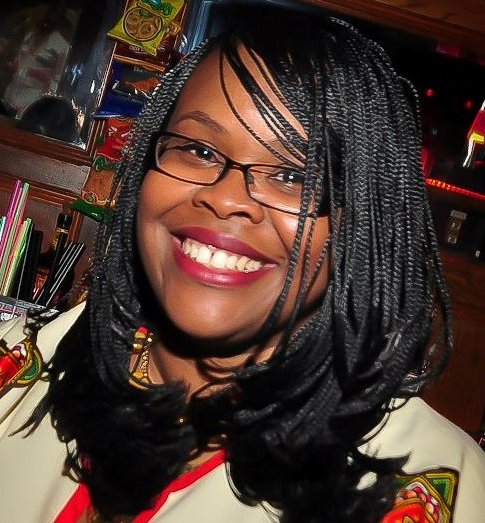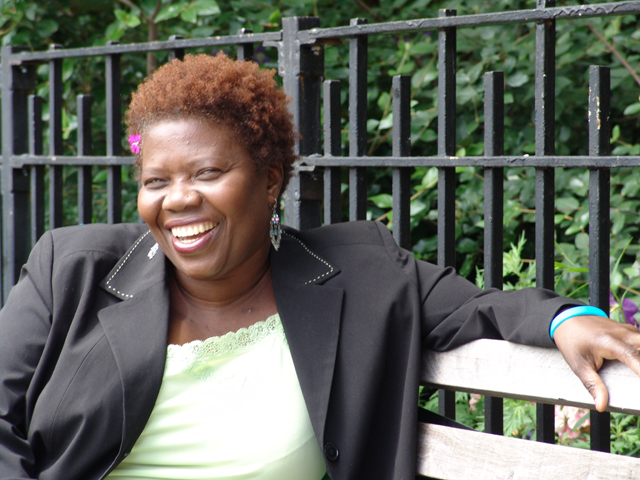Sh*t Book Reviewers Say
The Washington Post fiction critic Ron Charles stars in this addition to the current video craze that has produced such gems as the recently released Sh*t Agents and Editors Say.
Jump to navigation Skip to content
The Washington Post fiction critic Ron Charles stars in this addition to the current video craze that has produced such gems as the recently released Sh*t Agents and Editors Say.
Write a poem that is in the form of a letter to a person from your past, a person from history, or a place. As you revise the poem, examine the poem's structure, looking for patterns. How many syllables are most of the lines? How many lines make up each unit (or stanza). Once you get a sense of the dominant structure, revise the poem asserting that structure consistently.
Devoya Mayo is a poet, playwright, former radio personality, DJ, tastemaker, and events coordinator with P&W-sponsored The Soulflower Group. Based in Fresno, she dedicates her time to curating events that bridge the divide between the diverse communities residing within California’s Central Valley. From 2005–2006, Mayo was P&W’s Central Valley outreach consultant. Under the moniker Ms. Soulflower, you can find her spinning music in dimly lit establishments, organizing and hosting gatherings, and creating art via Etsy. What makes the Soulflower Group unique?
What makes the Soulflower Group unique?
We are a consortium of designers, DJs, musicians, photographers, poets, and organizers connected by the tenet that creativity and culture are essential in building community wellness.
What recent project have you been especially proud of?
The P&W-supported Soulflower Speakeasy featuring Sunni Patterson, along with Stephen Mayu, Connie Owens, and Joy Graves, was the easy standout of the year. Sharing space with someone who had appeared on HBO’s Def Poetry Jam, performed at major spoken-word venues, and worked with several well-known artists and performers—including Sonia Sanchez, Wanda Coleman, and Amiri Baraka—was spiritually motivating and an honest-to-goodness awakening. From the moment Sunni walked on stage with her son, she offered us a glimpse into her soul through poetry, reflecting the strife, angst, joy, and hope that many of us were feeling.
How do you find and invite readers?
I find writers via word-of-mouth, social networks, and the occasional open-mic night. You can’t walk down the street in a place like Fresno and not run into a writer of some kind. California’s Central Valley has always been home to a host of heavy hitters like Connie Hales, Tim Z. Hernandez, Juan Felipe Herrera, Lee Herrick, Philip Levine, and Gary Soto.
What’s the craziest thing that’s happened at an event you’ve hosted?
One night a crowd favorite walked on stage, placed a gym bag on a stool, and began to read from his chapbook. As he read about the abuse inflicted by various objects, he began to reach into his bag and toss out the offending objects. He threw boots, belts and, yes, even an iron into a crowd of poetry lovers. Needless to say, there were lots of near misses and, afterwards, we enacted a no-Gallagher-type-antics disclaimer for future events.
How has literary presenting informed your own writing and/or life?
When I’m part of an event, or in the process of curating one, my literary antennae are on high alert. I push myself harder and listen more than I speak, which is hard... let me tell ya. The elements that speak to me, or don't speak to me, inform what I want to provide.
What do you consider to be the value of literary programs for your community?
Very few have the power, resources, or authority to demand more programming. This is how we knew we had to do more than just daydream about what it would be like if we were really to invest in our artistic futures.
Photo: Devoya Mayo. Credit: Joe Osejo Photography.
Major support for Readings/Workshops in California is provided by The James Irvine Foundation. Additional support comes from the Friends of Poets & Writers.
In this clip from Fresno State University, the poet laureate reads "Gospel," from his collection Breath (Knopf, 2004). For more Philip Levine, read Michael Bourne's interview in the current issue and listen to the poet read "The Mercy."
Founded in 1987 by Philip Schultz, the Writers Studio is a nondegree granting, private school based in Greenwich Village in New York City that offers ten-week writing sessions to poets and fiction writers, plus a weekly craft class in which students study short stories, novels and poetry, learning how to “read as writers.” The school also hosts the Writers Studio Reading Series which features renowned American and international writers and poets and showcases the work of faculty and students.

Poet Stanley Kunitz often advised his students to end a poem on an image without explaining it. Write a new poem or revise an old one, ending it with an evocative image left unexplained.
Where's Barbie when you need her? "Sweet Talkin' Ken" takes Amy King's poem "Men by the Lips of Women" to creepy extremes in this special Valentine's Day installment of Clips.
At a November 2011 performance on the Murphey School Radio Show, a cross between the Grand Ole Opry and A Prairie Home Companion in Orange County, North Carolina, poet Alan Shapiro read the poem "Sick Bed." Shapiro's latest book is Night of the Republic, published by Houghton Mifflin Harcourt last month.
Poet and presenter of literary events Cheryl Boyce Taylor, blogs about the P&W-supported Calypso Muse Reading Series in New York City.
In the summer of 1994, I founded the Calypso Muse Reading Series. I wanted to create a place where Caribbean poets could nuture their work and native dialect. First, I called some of my favorite poets to tell them about the series. They were thrilled and jumped at the opportunity to share their work. Next, I contacted P&W to inquire about its Readings/Workshops program. My next call was to my friend Sigrid, who owned a small cafe in SoHo.
 We opened that September to a full house! Rodlyn Douglas, Suheir Hammad, and Hal Sirowitz were my first features, along with a stirring open mic. The series boasted a bevy of poets from diverse backgrounds, some of the poets included: Sekou Sundiata, Jewelle Gomez, Elena Georgiou, and Cheryl Clarke.
We opened that September to a full house! Rodlyn Douglas, Suheir Hammad, and Hal Sirowitz were my first features, along with a stirring open mic. The series boasted a bevy of poets from diverse backgrounds, some of the poets included: Sekou Sundiata, Jewelle Gomez, Elena Georgiou, and Cheryl Clarke.
Poets from Calypso Muse past have parlayed their voices into writing careers! Hal Sirowitz was awarded an NEA, Suheir Hammad won the Audre Lorde Writing Award, and Rodlyn Douglas was the P&W-supported writer at Lincoln Square Neighborhood Center's senior writing program.
P&W gave Calypso Muse its first grants of twenty five dollars per reader! The support we received helped to nuture our stories. The series' poets reminded audiences that every voice is authentic and deserves celebration.
Since 1994, I have received P&W funding for a number of programs, including: Trini Girls Take Brooklyn, The Womens Reading Series at McNally Jackson Books, and the Calypso Muse House Reading Series. With P&W support, I've become a force in the literary community!
Photo: Cheryl Boyce Taylo. Credit: Artis Q. Wright.
Support for Readings/Workshops in New York City is provided, in part, by public funds from the New York State Council on the Arts, and the Department of Cultural Affairs, with additional support from the Louis & Anne Abrons Foundation, the Axe-Houghton Foundation, the A.K. Starr Charitable Trust, and Friends of Poets & Writers.
Valentine's Day isn't until next Tuesday, but some particularly amorous books (and booksellers) at Skylight Books in Los Angeles are already in the mood. Enjoy!